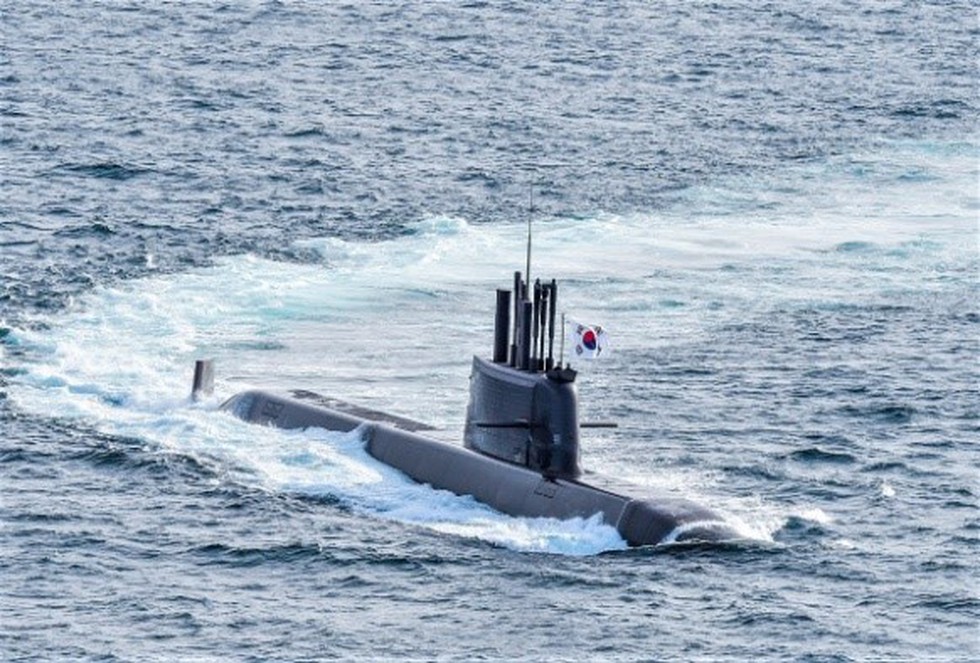SOURCE: RAUNAK KUNDE / NEWS BEAT / IDRW.ORG

In a surprising turn of events, South Korea’s Hanwha Ocean Co has officially withdrawn from India’s high-stakes tender for Project-75I, dealing a significant twist to the competition for the acquisition of six next-generation diesel-electric submarines. The withdrawal of Hanwha Ocean Co underscores the dynamic nature of defence procurement processes and sets the stage for a fierce two-way competition between ThyssenKrupp Marine Systems (TKMS) of Germany and Spain’s state-owned Navantia.
The announcement of Hanwha Ocean Co’s withdrawal was confirmed by Sanjeev Singhal, Director (Finance) at Mazagon Dock Shipbuilders Limited (MDL). He revealed that initial talks were held between Hanwha Ocean Co and MDL regarding the potential collaboration on the KSS-III Batch-II submarines. These submarines boast cutting-edge features such as Fuel-Cell Air Independent Propulsion (AIP), highly efficient AC motors, and advanced Lithium-ion batteries. However, Hanwha Ocean Co later opted to withdraw from the tender process altogether.
This unexpected withdrawal intensifies the competition for Project-75I, a critical project that aims to bolster India’s naval capabilities through the acquisition of six advanced submarines. With both French and Russian contenders having previously withdrawn, the field has now narrowed down to a head-to-head battle between TKMS and Navantia.
TKMS has proposed its U-212/214 class of diesel-electric submarines, leveraging its past collaboration with India. The company’s history dates back to the 1980s when it supplied the Indian Navy with four HDW Class 209 submarines, which remain operational to this day. This history of successful collaboration provides TKMS with a unique advantage in terms of familiarity and rapport with Indian naval requirements.
Navantia, on the other hand, is vying for the Project-75I contract with its S80 Plus submarine, a 3,000-ton distinctive model equipped with its unique Bio-Ethanol Stealth Technology (BEST) Air Independent Propulsion (AIP) technology often called third-gen AIP system.
The withdrawal of Hanwha Ocean Co has solidified the competition, transforming it into a two-way race that will shape the future of India’s naval defence capabilities.
NOTE : Article cannot be reproduced without written permission of idrw.org in any form even for YouTube Videos to avoid Copy right strikes